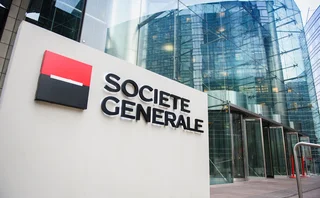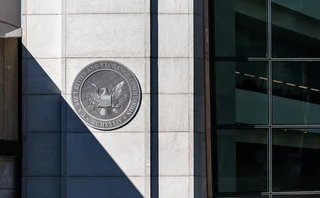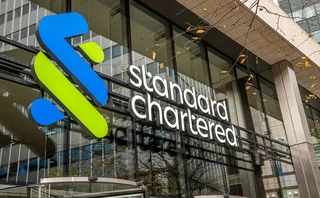
SG expands Italian derivatives business
SG, the investment banking unit of French bank Société Générale, has expanded its institutional derivatives sales force in Italy by merging its equities arm with its interest rate and credit divisions.
SG has a strong equity derivatives background - the Paris-based investment bank was rated either first or second for every equity derivatives category in Risk's inter-dealer rankings this year (Risk September 2004). But it is relatively weaker in credit or interest rate derivatives.
Armstrong sees the reorganisation as an opportunity to redress this situation. “Our client base in equity derivatives is something we can exploit in other areas as there are a lot of synergies available,” he said. But he stressed the move was not a result of poor performance from one side of the business. “It is not that we are weaker on one side of the business and that that justifies our choice of joint venture. It would make sense anyway,” said Armstrong.
SG’s Italian client base is mainly made up of product distributors and proprietary investors, client types that Armstrong sees as having very different needs. “We believe, however, the frontiers between the various classes of products are receding. We see our Italian project as an opportunity for an expansion of hybrid products,” he said.
The Milan-based team, which he is looking to expand from 16 staff to 20 in the near future, will have both sales staff and a transactional engineering team that will develop hybrid solutions between asset classes. “I think it’s a good move to approach our clients with a larger toolbox of instruments at our disposal,” said Armstrong. He added that collateralised debt obligations with equity participation and callable equity structures are early examples. "We need to go further into the links between equity, credit and interest rate risks,” he said.
Armstrong cited BNP Paribas and JP Morgan Chase as his main competitors, but stressed that many other banks were entering the market. “They have a weaker position,” he said, “but if you add all the newcomers together, it’s certainly a more guarded market.”
Only users who have a paid subscription or are part of a corporate subscription are able to print or copy content.
To access these options, along with all other subscription benefits, please contact info@risk.net or view our subscription options here: http://subscriptions.risk.net/subscribe
You are currently unable to print this content. Please contact info@risk.net to find out more.
You are currently unable to copy this content. Please contact info@risk.net to find out more.
Copyright Infopro Digital Limited. All rights reserved.
As outlined in our terms and conditions, https://www.infopro-digital.com/terms-and-conditions/subscriptions/ (point 2.4), printing is limited to a single copy.
If you would like to purchase additional rights please email info@risk.net
Copyright Infopro Digital Limited. All rights reserved.
You may share this content using our article tools. As outlined in our terms and conditions, https://www.infopro-digital.com/terms-and-conditions/subscriptions/ (clause 2.4), an Authorised User may only make one copy of the materials for their own personal use. You must also comply with the restrictions in clause 2.5.
If you would like to purchase additional rights please email info@risk.net
More on People
SocGen’s head of US Treasury clearing preparations to depart
Bank’s head of product for FX and fixed income prime brokerage for the Americas set to leave later this month
People: You’re fired! US agency rejig, new CROs at ING, StanChart, and more
Latest job changes across the industry
SocGen’s PB clearing head departs for SwapAgent role
Jamie Gavin takes external consulting role for LSEG’s non-cleared swaps platform
Robertson leaves Barclays’ prime services in New York
Head of prime derivatives services unit departs after seven years with the bank for Carbon Point
Citadel Securities hires former Eisler CRO
Pregnell joins market-maker after demise of hedge fund
People: Fishwick hands over BlackRock CRO role, Citi expands Asia FX team, and more
Latest job changes across the industry
Nomura shuffles risk methodology team
Epperlein takes advisory role six months after Japanese bank’s FRTB IMA go-live
Andy Ross leaves StanChart
CurveGlobal veteran confirms his departure as bank’s global head of prime brokerage







